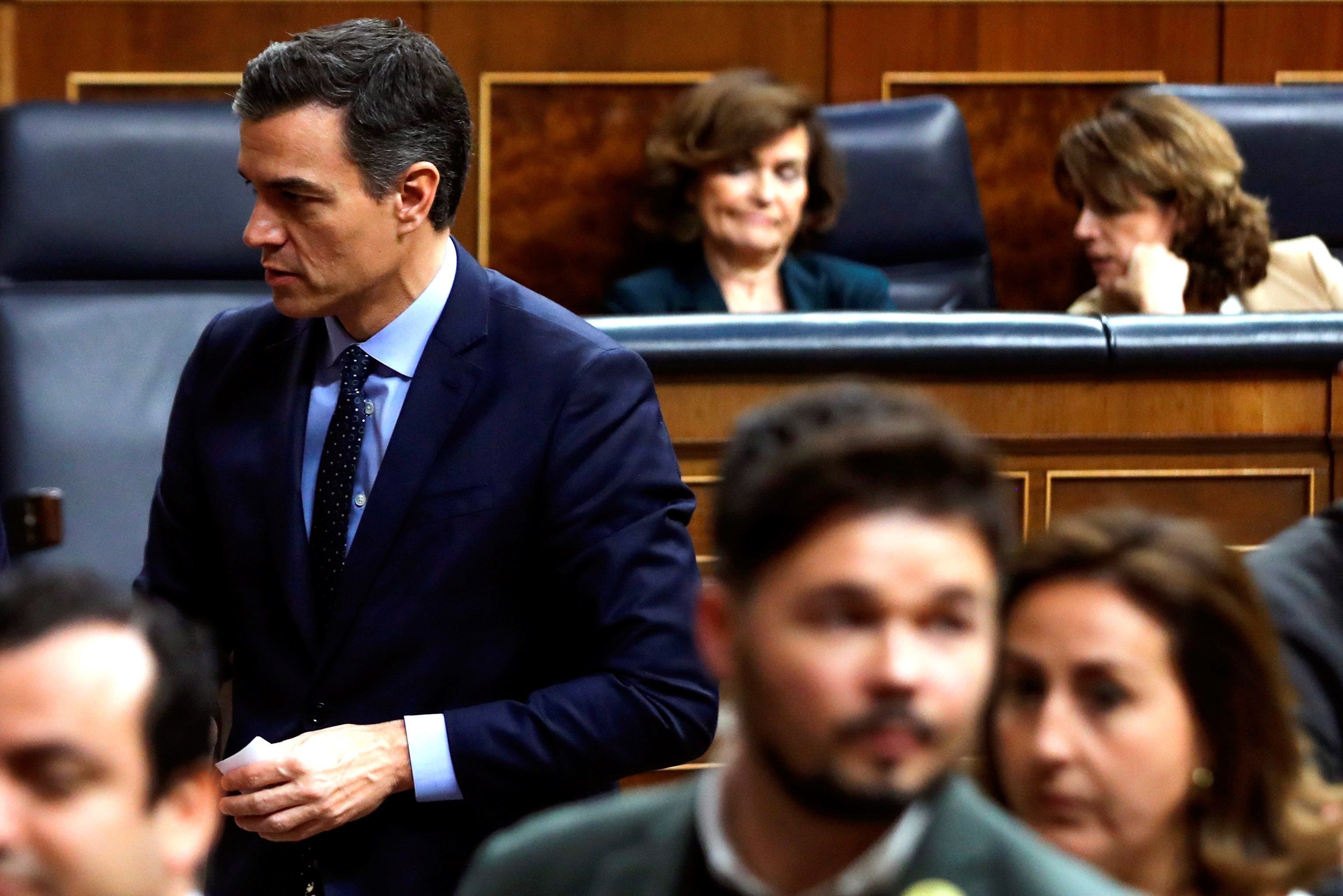In 1977, there were no Catalan pro-independence parties involved in Spain's famous Moncloa Pacts. The Catalan Republican Left (ERC) had not yet been legalized and the predecessors of today's Together for Catalonia (JxCat) were “nationalist”, but not pro-independence. Four decades later, in the new Moncloa Pacts being sketched out by prime minister Pedro Sánchez in response to the coronavirus crisis, the pro-independence political groups don't enter into the plans once again. The parties have both excluded themselves and been excluded by the Spanish executive. Although the Sánchez government reiterates that the offer is "open" to anyone who wishes to join, this is not the case. The executive underlines that there are "some elements that need to be shared". One of them, the unity of Spain.
In a press conference this Wednesday at noon, transport minister José Luis Ábalos asserted that the goal was to form "a great national reconstruction agreement with those who want to work under this approach". However, he reiterated that it would be necessary "to share certain elements" in order to take part. "A consciousness of the country is one of these," said the minister, adding that there should be a shared understanding of "territorial unity".
The independence parties themselves have not felt strongly attracted to take part in this offer. ERC, who are one of the Sánchez government's allies, accused the PM of wanting to "whitewash" and "shore up the regime" with its proposal for a new version of the 1977 pacts. That is why ERC makes it clear that they will "not take part in this." In a statement, the party warned today that "the way out of this crisis cannot be found via vestiges of the past." Also today, JxCat and the third Catalan pro-independence party, the CUP, have distanced themselves from the still-vague proposal, which they also regard as a way of papering over the many problems inherited from the Spain's post-Franco transition to democracy.
Not the right, either
In fact, the Spanish government does not currently have many participants in its Moncloa Pacts version 2.0. As Ábalos admitted, support for the plan has only been assured by Unidas Podemos, the left-wing party which is the coalition partner of the Socialists. That is why the transport minister again called on PP leader Pablo Casado today to "reconsider" and join this "great pact". He appealed to the leader of the opposition's "patriotism".
Spain's 1977 Moncloa Pacts - named after the Moncloa palace, official seat of the Spanish government - took place at a time of serious economic downturn during Spain's political transition after the end of the Franco dictatorship. They included agreements on economic contention and control but also guaranteed a series of social and political reforms, and occurred in a context when previously-banned political groups such as the Communists were being recognized and the Catalan self-government institution the Generalitat had been reinstated after 40 years.

